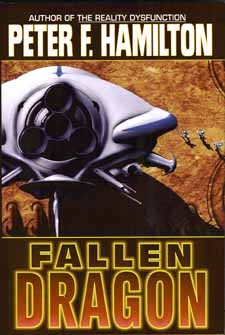.jpg)
Let me tell you about the city…
I don’t think that I’ve ever been this floored by a novel (A Storm of Swords at least had the dignity to come with a warning label in the form of the prior two volumes). VanderMeer is an author whose name seems to be pretty universally revered, when recognized, amongst SFF fans. For what feels like months, I’ve been looking for A City of Saints and Madmen. After having my search thwarted by every bookstore in Long Island, Rhode Island and Massachusetts, I finally found Veniss Underground in a college bookstore just before giving up hope. I had never heard of it, but by then I was willing to try anything with VanderMeer’s name, or a close approximation of it, on the spine.
The book was, as can be inferred by the first sentence, stunning. It’s set far in the future, in a time when earth’s various cities have become high tech city states. For a time, Veniss enjoyed a golden age, but, for causes unspecified, the city’s government came crashing down. In its absence, the various districts of the city have become independent in their own right, and the city’s underground is spilling into daylight. Though he is only visible for a brief time, Quin is the catalyst of the entire book. It is his influence that sets every one of the characters on their path.
The glory of the book doesn’t come from the plot. It’s in the prose and characters that the magic is truly found. Experimental techniques such as second person and its kind are viewed with – not undeserved – hesitation by most readers. It takes a book like this to remind us that it isn’t the techniques that are bad, just their continual misapplication. The writing here is filled with great phrases, yet remains clear throughout. Allusions to other literary works fill the story, Dante’s Inferno and countless other classics and myths prominent among them.
The book is structured in three parts of increasing length, one from each of the character’s perspectives. Different parts are each written in a totally different viewpoint style and vary considerably in atmosphere. The first of these is told by Nicholas. Despite being the reason that the rest of the characters are dragged down into the underworld, Nicholas’s screen time is quite brief. His chapters are written from a selfish first person perspective, and, as a failed artist and “slang jockey” are littered with turns of phrase that vary from insightful (The city is sharp, the city is a cliché performed with cardboard and painted sparkly colors to disguise the empty center – the hole), to amusing (replacing IE with Eye E, for instance), to downright pretentious (wait, listen: the end of the world is night; that’s mine, a single-cell haiku).
The second part of the book is told from Nicola’s perspective. Prose here is written in a second person, present tense style. This not only sucks you in beautifully, after a few seconds of adjustment, but also provides some of the best writing:
You. Were. Always. Two. As one: Nicola and Nicholas, merging into the collective memory together, so that in the beginning of a sentence spoken by your brother you knew the shadow of its end and mouthed the words before he said them.
The third part of the book is told from Shadrach, Nicola’s former lover. His style is told in a more detached third person perspective. Here, the eye grabbing writing is pushed farther back, to allow the outside world to shine through more clearly. For a few instants this transition seems like a shame, but the prodigal strangeness of the underworld makes up for it with ease. Shadrach’s section forms the largest portion of the book and from him we learn the most about Veniss, and about all of the characters. Prior misconceptions are set to rights, and there are two moments of brilliance that can best be described as the structural equivalent of a plot twist.
The underworld is strange in a way that few other fantasies have ever managed to be. It can, perhaps be compared to Mieville for sheer inventiveness, but the comparison comes more from the authors’ titanic imaginations than any true similarity. As the quest continues, and Shadrach descends from level to level, the strangeness becomes ever more profound. There are scenes of horror here, and scenes of wonder, and all of them are perfectly envisioned and conveyed.
Also contained in the volume are three short stories and a novella, all set within the Veniss milieu. The short stories are all interesting, but none approach the level of the preceding novel. The greatest of them is the third, A Heart For Lucretia. Its interesting structure, and bizarre chain of events, is captivating, yet the entire thing felt like it was perpetually on the edge of greatness, unable to cross over within its limited length.
The novella, Balzac’s War, is the best of the extra content. Like the shorts, it takes place far after the main story, and is centered on a war between humanity and the flesh dogs. The story begins with a brief scene, then jumps a large number of years. The reasons for that never become wholly apparent, but the story has strong characters and is highly unsettling nonetheless.
Veniss Underground is a story that draws you in and does not let you go, filled with memorable characters and troubling themes, evocative images and unforgettable action. It is not something that should be allowed to pass by. If you don’t have it, you have done a grievous disservice to yourself. Remedy that at once.
All of this leaves A City of Saints and Madmen with quite a bit of living up to do.
